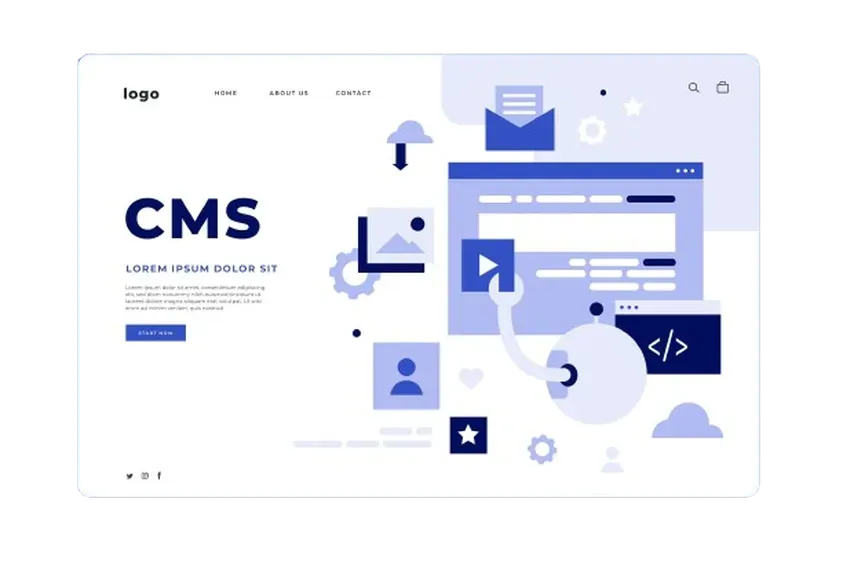
Mantenimiento WordPress en Barcelona
Planes de mantenimiento web en Barcelona
¡Haz que tu web funcione siempre al 100%!
En AMCODESIGN te ofrecemos tres planes flexibles de mantenimiento WordPress en Barcelona, pensados para cubrir las necesidades reales de tu negocio:
Un plan básico para mantener tu sitio actualizado y seguro, un plan profesional con más control, rendimiento y soporte técnico, o un plan avanzado, ideal para tiendas online o proyectos complejos que requieren atención continua.
¿Buscas una solución completa?
Elige el ![]() Pack SEO Premium, que incluye el Plan de mantenimiento avanzado y un ahorro mensual de 50 €. Puedes contratar los servicios con pago mensual o aprovechar el descuento por pago anual.
Pack SEO Premium, que incluye el Plan de mantenimiento avanzado y un ahorro mensual de 50 €. Puedes contratar los servicios con pago mensual o aprovechar el descuento por pago anual.
¡Tú decides cómo cuidar tu web WordPress con total tranquilidad!
346 €
El precio incluye:
650 €
El precio incluye:
(limpieza base de datos, cacheo)
1.220 €
El precio incluye:
40 €/mes
El precio incluye:
75 €/mes
El precio incluye:
120 €/mes
El precio incluye:
![]() *Precios sin IVA.
*Precios sin IVA.
Nota: cualquier trabajo adicional fuera del alcance del plan se facturará a 18 €/hora.
¿Necesitas más rendimiento, seguridad y SEO? 👉 Pásate al Pack SEO Premium con todo incluido.
¿No sabes qué plan de mantenimiento WordPress en Barcelona es para ti?
No te preocupes. Te ayudamos a encontrar el plan ideal según el tipo de web que tengas y las necesidades reales de tu negocio.
Ya sea que necesites mantener una web sencilla o gestionar el mantenimiento técnico de una tienda online, te asesoramos sin compromiso. Somos especialistas en mantenimiento web en Barcelona y trabajamos con WordPress día a día, garantizando un servicio eficiente, seguro y adaptado a ti.
Contacta con nosotros y déjanos cuidar de tu web como si fuera la nuestra.
¿Por qué WordPress necesita mantenimiento?
WordPress es la plataforma más utilizada para crear páginas web y tiendas online. Su versatilidad, la gran comunidad de desarrolladores y la amplia disponibilidad de plugins la convierten en una herramienta potente y flexible.
Sin embargo, para garantizar un funcionamiento estable, WordPress requiere mantenimiento continuo: actualizaciones, control de errores, y optimización de recursos.
En AMCODESIGN ofrecemos mantenimiento WordPress en Barcelona especializado, para empresas y profesionales que quieren olvidarse de los problemas técnicos y centrarse en su negocio.
¿Qué incluye nuestro servicio?
- Actualización de plugins, temas y versión de WordPress.
- Optimización de velocidad y carga.
- Solución de errores técnicos.
- Refuerzo de la seguridad y protección contra amenazas.
- Soporte técnico personalizado.
Con nuestro servicio de mantenimiento web en Barcelona, tu sitio estará siempre protegido, rápido y en manos expertas.


Mantenimiento WordPress profesional en Barcelona
Tu página web merece estar siempre actualizada, rápida y libre de errores. Con nuestro servicio de mantenimiento WordPress en Barcelona, nos aseguramos de que tu sitio funcione a la perfección en todo momento.
Realizamos actualizaciones periódicas del núcleo de WordPress, temas y plugins, supervisamos el rendimiento general, y aplicamos mejoras técnicas para evitar posibles problemas. Trabajamos con empresas, autónomos y negocios locales que necesitan estabilidad, seguridad y eficiencia digital.
Adaptamos el mantenimiento a tus necesidades reales, asegurando que tu web se mantenga segura, rápida y en perfecto estado, sin interrupciones.
Soporte técnico y formación personalizada
¿Tienes dudas al usar tu sitio web? ¿No sabes cómo subir contenido o gestionar tu correo corporativo?
Te ayudamos paso a paso. Nuestro servicio incluye soporte técnico para incidencias, errores comunes y ayuda personalizada para gestionar tu sitio WordPress.
Además, si lo deseas, te enseñamos a introducir y editar contenido tú mismo, sin afectar el diseño ni el rendimiento del sitio. Estaremos a tu lado para resolver cualquier inconveniente que pueda surgir, con asistencia por email o WhatsApp (según el plan contratado).
No solo resolvemos problemas, también te damos autonomía y herramientas para gestionar tu web con seguridad.


Optimización avanzada y evolución constante
Lleva tu sitio al siguiente nivel con optimización técnica profesional: velocidad, estabilidad y posicionamiento. Configuramos herramientas como LiteSpeed, QUIC.cloud y Cloudflare para acelerar la carga, mejorar la experiencia del usuario y cumplir con los Core Web Vitals de Google.
Además, trabajamos el SEO técnico on-page, optimizando estructuras, imágenes y tiempos de respuesta. Analizamos el rendimiento con informes reales y te ofrecemos mejoras continuas para que tu web se mantenga competitiva en los buscadores.
Mejora el posicionamiento, aumenta tus conversiones y haz que tu sitio destaque frente a la competencia en Barcelona.
¿Quieres que tu web funcione siempre al máximo nivel?

Ofrecemos mantenimiento WordPress en Barcelona para que tu sitio esté siempre actualizado, rápido y seguro. Nos encargamos de todo: revisiones, copias de seguridad, optimización técnica y soporte personalizado.
